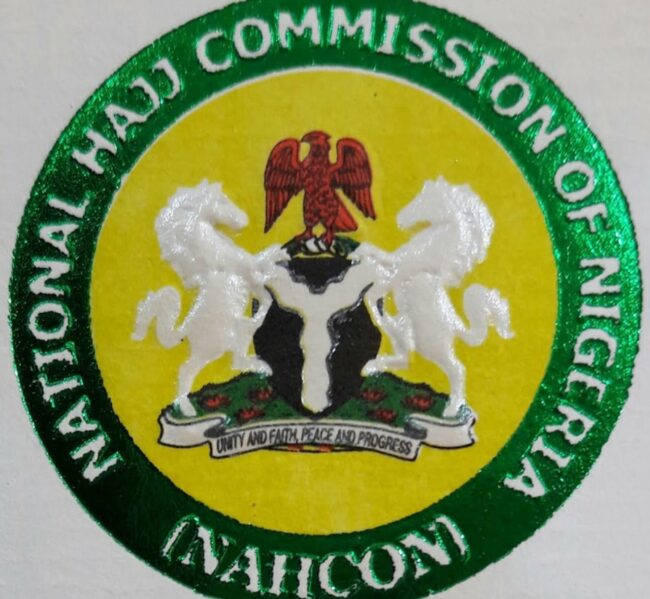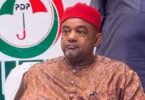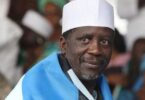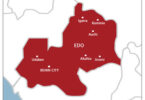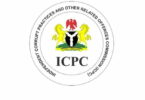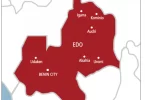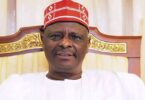The Presidency has called for reforms within the National Hajj Commission (NAHCON) to address issues of financial mismanagement, negligence, maltreatment of pilgrims, and late preparation for pilgrimage exercises.
This position was announced on Wednesday when Chief of Staff to the President, Femi Gbajabiamila, and Deputy Chief of Staff, Ibrahim Hadeija, undertook a fact-finding visit to the NAHCON headquarters in Abuja. This visit was part of their engagement with government agencies under the supervision of the State House.
Addressing the challenges at NAHCON, Gbajabiamila stated: “This is a Commission that should not be involved in any controversy, given its mandate and what it represents. It’s a religious commission set up to fulfill religious and spiritual obligations for men and women of faith.”
He continued, “We are always surprised, even from my time as Speaker, when issues that should never arise come up in relation to this Commission. Pilgrims travel every year to fulfill an Islamic religious obligation. Not only that, but when they are there, they represent Nigeria.”
“As ambassadors of Nigeria, it is expected that they carry the emblem and flag of Nigeria with pride, representing us through their demeanor and conduct. Yet, many times, our pilgrims face maltreatment or lack of proper organization from this Commission, leading to improper conduct.”
Gbajabiamila emphasized that responsibility for these issues lies with the Commission, both in Nigeria and Saudi Arabia. On the recent controversy that led to the appointment of a new Executive Chairman, he urged the management staff to collaborate closely with the Vice President’s office, which oversees the agency, to identify past mistakes, make corrections, and ensure seamless operations for pilgrims.
“What has happened has happened, and we are here to chart a way forward. It is time for the Commission to be reformed to align with Mr. President’s Renewed Hope Agenda,” he said. Gbajabiamila expressed optimism for a new chapter in the Commission’s operations, stressing, “Hajj is not supposed to cause pain to the pilgrims.”
The Deputy Chief of Staff echoed Gbajabiamila’s sentiments, emphasizing the need for early preparation for Hajj operations. He added, “Hajj is essentially a big logistics operation. From my involvement in the 2024 operation, one key lesson learned is the need for early preparation.”
“Nigeria has the largest quota of pilgrims from Africa, and we have countries with fewer pilgrims than a single Nigerian state. The Hajj Commission also needs to be more transparent about what pilgrims are paying for.”
Prince Malam Abdulrazak, NAHCON’s Executive Commissioner for Policy, Personnel Management, and Finance, called for an overhaul of the Commission’s accounting system and an improvement in federal character representation within the organization.
“The Commission is described as a national entity, but the federal character is not fully represented. The nominal roll is dominated by a particular region,” Abdulrazak said.
The two top presidential aides also visited the National Emergency Management Agency (NEMA), where Gbajabiamila highlighted the potential role of states in funding the Agency through an insurance scheme or other means.
At NEMA, Gbajabiamila stressed the need to shift disaster management in Nigeria from a reactive to a proactive approach. Emphasizing the importance of prevention over mitigation, he noted that many disasters in the country could be avoided with better preparation and early warnings.
“NEMA’s mandate is two-pronged: prevention and mitigation of disasters. It appears that we concentrate more on mitigation and neglect prevention. We must focus more on prevention because many of these disasters can be avoided,” he said.
On funding challenges at NEMA, Gbajabiamila suggested exploring creative funding methods, including state contributions through an insurance scheme.
“What role can states play? How do we tweak the law to make it clear that states might form an insurance scheme and contribute funds? Disasters occur in the states, and there is no land called ‘federal government.’ Every disaster is local,” he said.
Discussions at the meeting, attended by the Deputy Chief of Staff, Permanent Secretary State House Engr. Olufunso Adebiyi, and Senior Special Assistant to the President on Administration and Operations (Office of the Chief of Staff) Mrs. Oyinade Nathan-Marsh, also highlighted the role of technology and regular training in improving disaster response.
ALSO READ:Fuel scarcity: Eight vessels stuck at collapsed Delta Escravos breakwater
Director-General of NEMA, Mrs. Zubaida Umar, disclosed that from January 2024 to date, the agency has provided 626,000 essential relief items to over 100,000 people across 33 states and the Federal Capital Territory. These include 288,875 food items, over 300,000 non-food items, and more than 26,000 building materials.
Regarding the distribution of 42,000 metric tons of assorted grains approved by the President, the Director-General reported that the grains have been distributed to all states except Akwa Ibom and Osun due to logistical issues. “The states are responsible for logistics to transport these items. So far, we have distributed 39,347.6 metric tons of grains,” she said.

